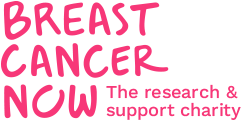Stay in touch
We'd love to keep in touch about news, events and how you can get involved. To hear from us, please sign up below.
In 2007 we launched the Male Breast Cancer Study. Read more about the study and it's findings.

Breast cancer in men is very rare, but around 370 men are diagnosed with the disease every year in the UK, and around 80 men die.
The Male Breast Cancer Study was established to pinpoint the precise genetic, environmental and lifestyle causes of breast cancer in men, which will enable us to identify those who are at risk and understand what can be done to lower the chances of developing the disease.
The study also aims to identify similarities and differences between breast cancer in men and women.
Over 1,000 men who have been diagnosed with breast cancer are participating in the Male Breast Cancer Study, as well as over 1,000 men without breast cancer.
Each participant provides blood samples to enable researchers to analyse differences in their DNA, and has answered detailed questionnaires regarding their lifestyle and medical history.
The study is being led by Professor Montserrat Garcia-Closas and Professor Amy Berrington at the Institute of Cancer Research, who are also analysing the data gathered from the Breast Cancer Now Generations Study to understand the causes of breast cancer in women.
The Breast Cancer Now Male Breast Cancer Study is the largest collection of DNA and tumour samples from men with breast cancer in the world. We hope that by analysing data generated from these samples we’ll be able to understand what causes male breast cancer, how it differs from female breast cancer and how best to treat it.
Dr Nick Orr, former leader of the Male Breast Cancer Study
We know that around 10% of breast cancer cases in men are caused by altered BRCA2 genes. But The Male Breast Cancer Study aims to use the DNA samples provided by participants to find out which other genes are associated with an increased risk of breast cancer.
It has helped researchers to find a key genetic change in a genece called RAD51B linked breast cancer in men. This single change can increase the risk fo breast cancer by up to 50%.
Recently, the study found three more genetic changes that increased the risk of developing breast cancer in men by approximately 47%, 45% and 61% respectively.
All three changes are also known to affect the risk of the disease in women, so researchers then analysed whether male and female breast cancer has similar genetic causes. They found that there was a significant overlap in genetic risk factors for breast cancer in men and women. Read our news story on these findings.
The study has also contributed to global investigations into the causes of male breast cancer through the Male Breast Cancer Pooling Project. This project has identified that obesity in men increases the risk of developing breast cancer by around 30%.
In future, these findings could help identify men who are at higher risk of developing breast cancer and lead to new preventive treatments.
Find out the signs and symptoms of breast cancer in men.
